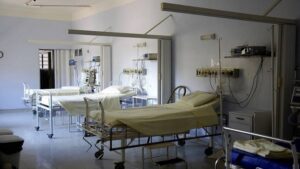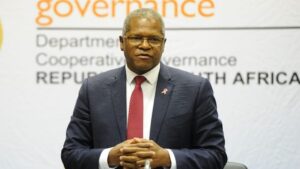
Deputy President Paul Mashatile says that there will be no load shedding by the end of the year. However, he has not explained what will be done to end them.
Mashatile was delivering a public lecture focusing on 30 years of democracy at the University of Johannesburg. He has conceded that some in the audience may not believe him.
He has, however, assured them that the Electricity Minister, Dr Kgosientsho Ramokgopa has plans to end load shedding.
“I said to him, No, you are not working yourself out of a job, once you have ended load shedding, you must plan for the next 10 years. You must invest in generation, make sure that Eskom builds new power stations, and ensure that renewables are implemented, such as solar, and wind, making sure that they can power. So, various initiatives must come into the mainstream. I said to him, Your job is not ending when you end load shedding this year.”
Mashatile stated that the government aims to resolve water challenges nationwide before they reach a crisis point similar to the energy sector.
He has announced that he has been appointed by the President to lead a task team that will comprise all ministers related to the water sector as well as individuals and groups that can assist in finding a lasting solution for the country’s water challenges. Mashatile says the team will lead a process of engagement to ensure that no one is left behind.
He says the Department of Water and Sanitation Department has already allocated R10.1 billion to municipalities through the regional bulk infrastructure grant, R6.4 billion through the water services infrastructure grant, and R1.4 billion through the municipal recovery disaster grant to address water challenges.
“This water task team will meet this evening and we will start going to all provinces but we will start this week in KZN particularly eThekwini. There are various reasons why we have started to have water issues and one of the reasons is the aging infrastructure. So, this is a task that we regard as urgent and we are going to work hard so that we don’t reach another problem. We have had load shedding, we don’t want a water crisis.”







